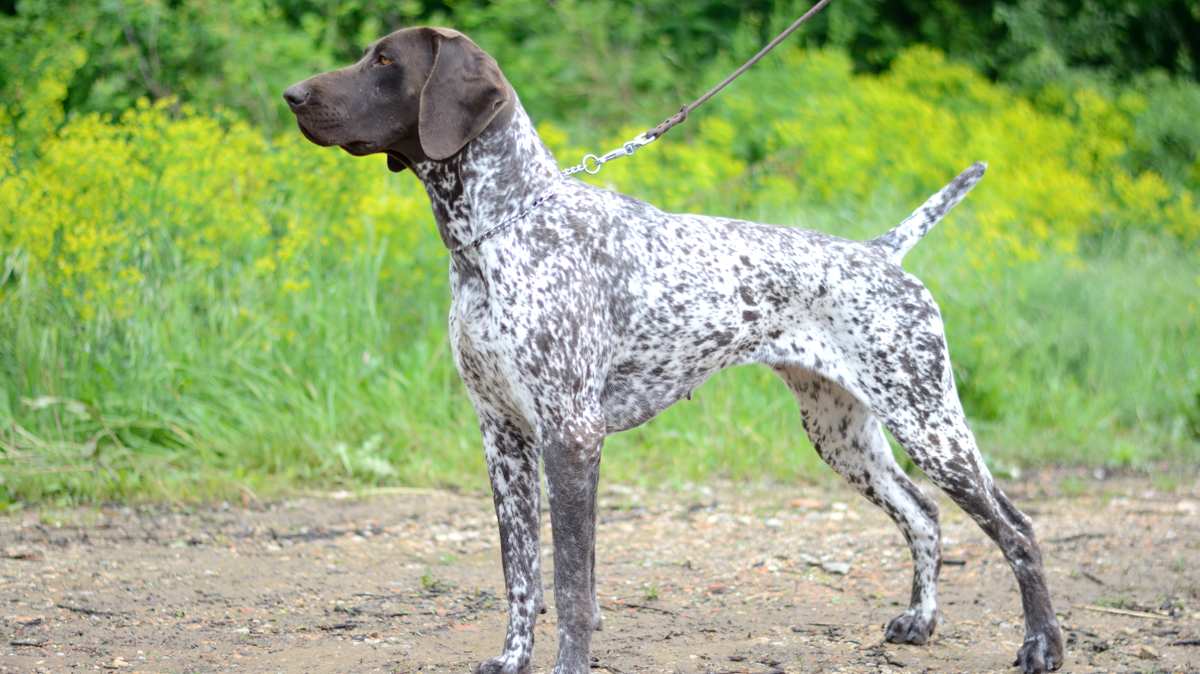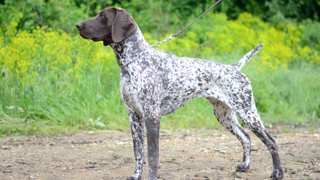The German Shorthaired Pointer is a sporting dog through-and-through. They were recognized in their home country, Germany, in the late 1800s and quickly became popular with sportsmen in other countries around the globe; even the AKC recognized them as early as 1930. The acclaim comes from the quality of being so versatile: they track, they retrieve, they kill, and (of course) they point and they do all of this while being excellent companions. We recommend this breed for sportsmen, athletes and generally fit, active owners and families. Rural life certainly suits this breed better because they love open spaces to roam but a large fenced yard will do; they are not sedentary apartment dogs and they will not behave if locked up in doors most of the day. Here are some German Shorthaired Pointer facts to show you some benefits and problems associated with the breed:
One of the top versatile hunting companions
Great family dog, playful and energetic
Friendly with friendly people
Can be moderately watchful and protective
Does ok with other dogs
Easily trained, obedient, eager to please
Low grooming maintenance
Excellent exercise buddy
Handsome appearance
Affectionate with his/her household
Boisterous behavior necessitates supervision with young children
Not a guard dog
Can develop behavior problems if bored, lonely or not exercised enough
Retains high prey drive towards small, non canine pets like cats
Will chase critters outdoors if not in an enclosed area or leashed
Exercise needs very high, hours of daily outdoor time a MUST
Not an apartment dog
Fenced yard or large rural property ideal
Purebred
12 - 14 yrs.
22 - 24 in.
60 - 75 lbs
OverallFamily FriendlyChild FriendlyPet FriendlyStranger Friendly
Easy to GroomEnergy LevelExercise NeedsHealthShedding Amount
Barks / HowlsEasy to TrainGuard DogPlayfulnessWatch Dog
Apartment DogCan be AloneGood for Busy OwnersGood for New OwnersIntelligence








